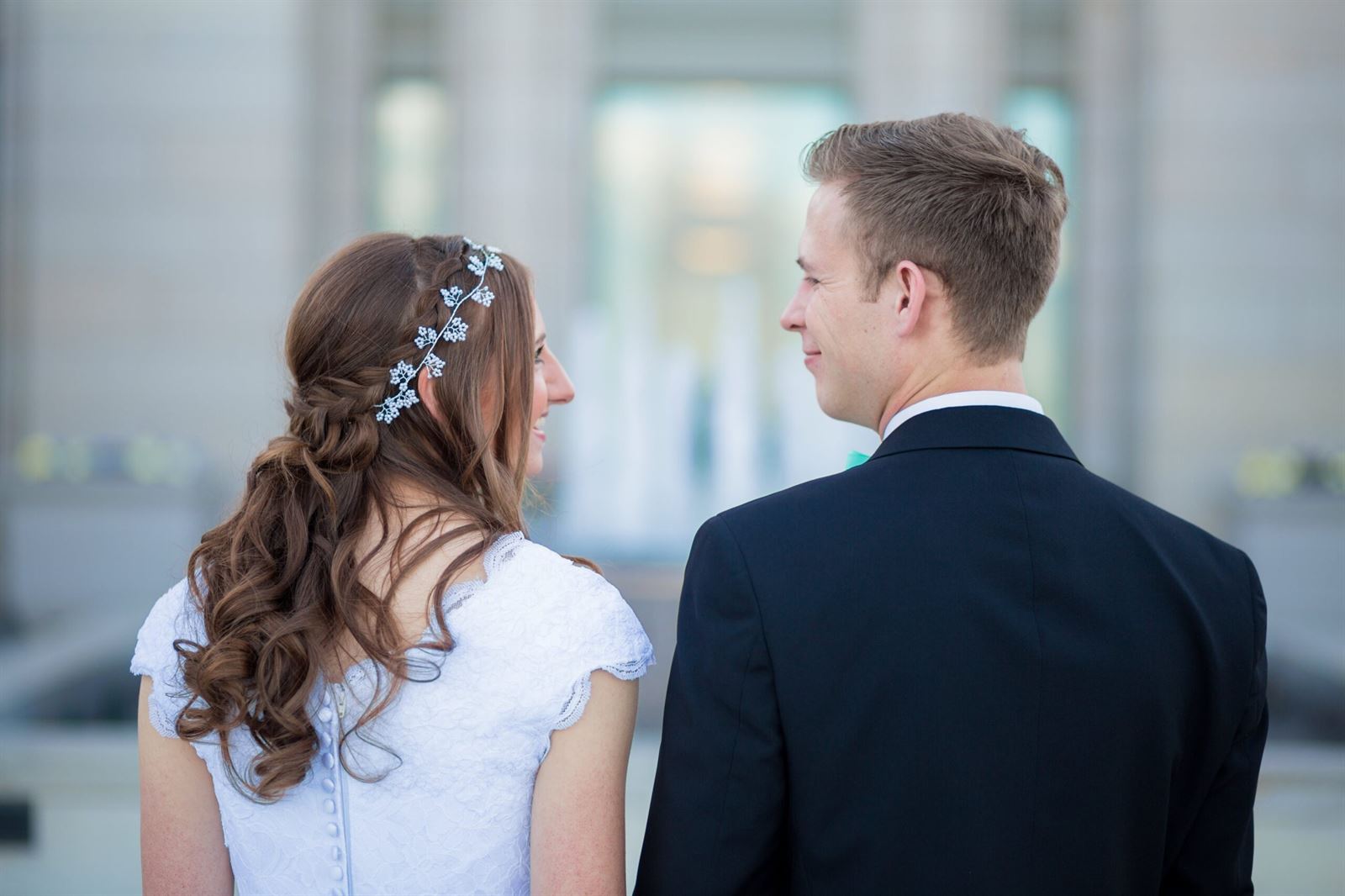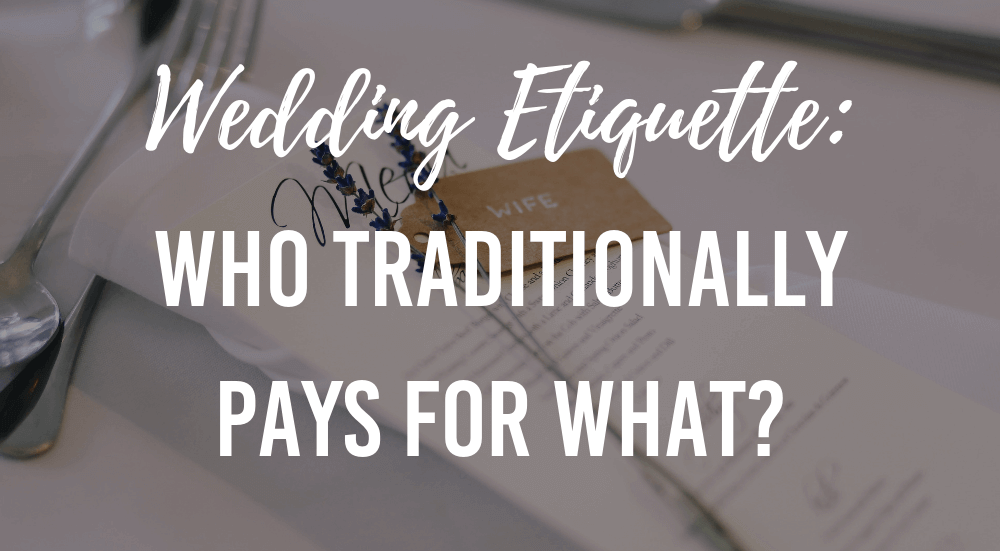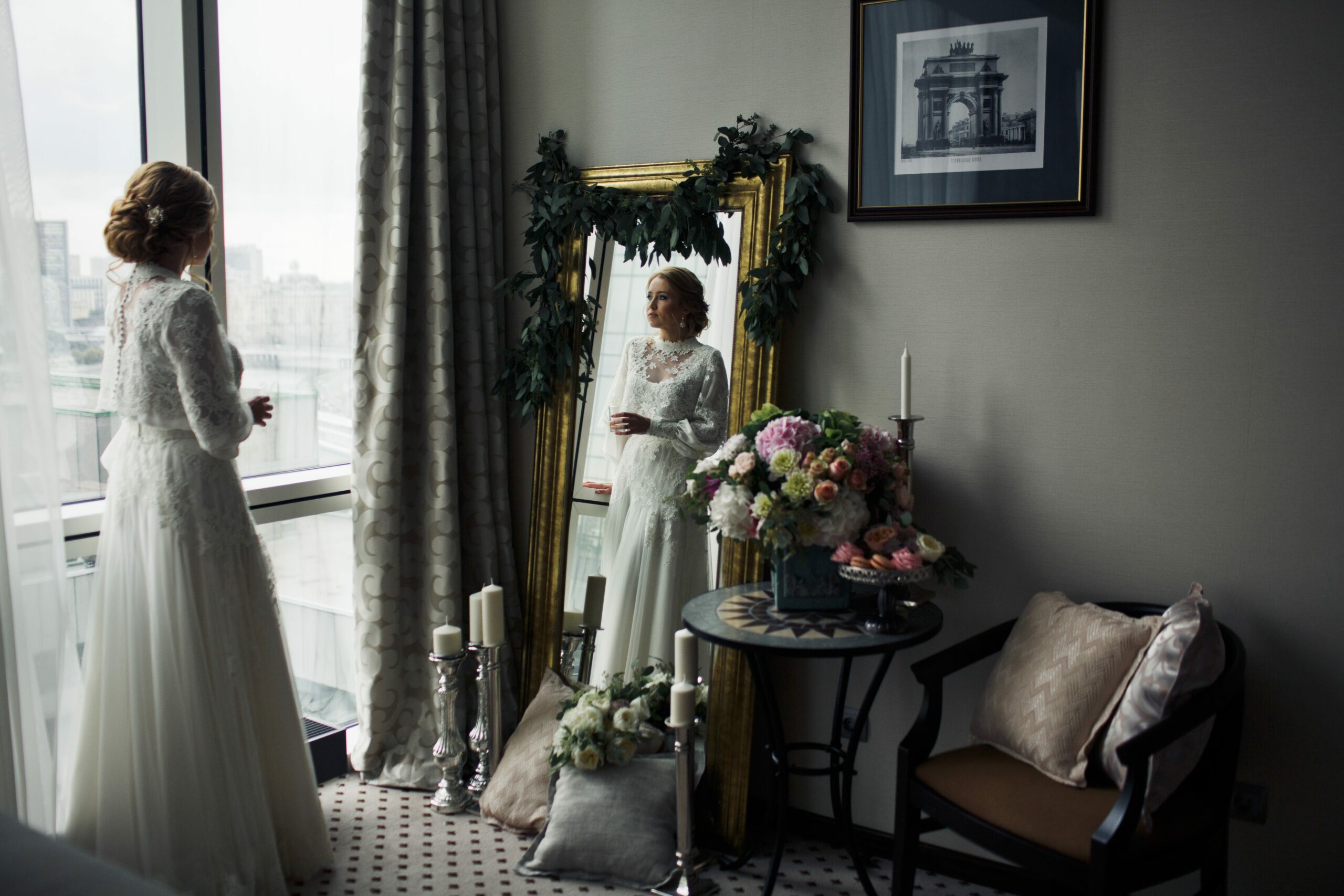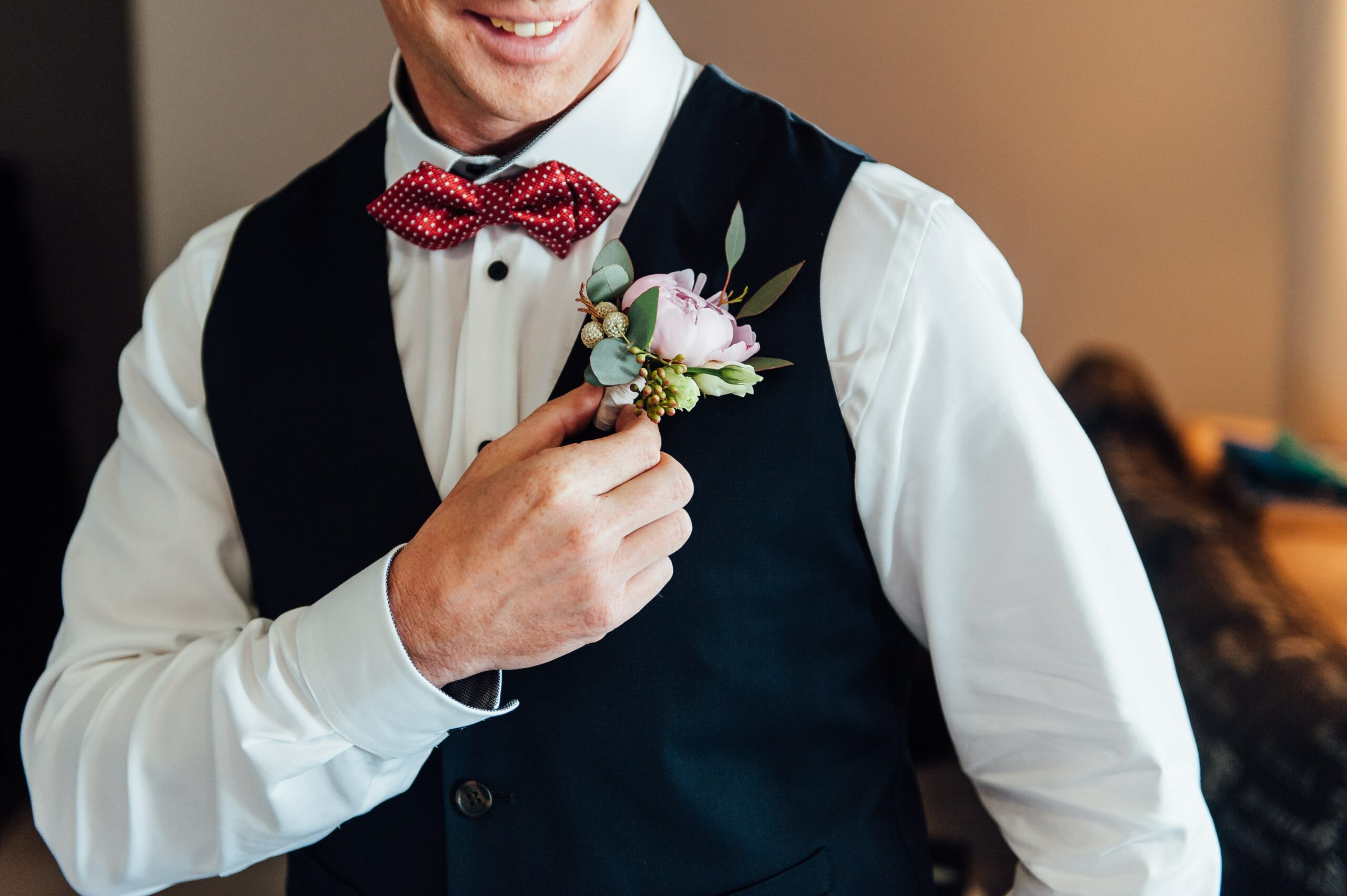Wedding Etiquette: Who (Traditionally) Pays For What?


You’re engaged to your best friend, your partner in crime, your ride or die — and now it’s time to start planning the big party!
Now, the first thing on your mind is likely to be, “How much is all of this going to cost?”… and the second is probably, “But how are we going to pay for it?” But don’t panic! We’ve got a super powerful budget tool which uses thousands of couples’ real budgets to estimate the total cost of your wedding and then break that down so you have a good idea of exactly what each part will cost.
Some families offer to help the newlyweds-to-be celebrate the most magical day of their lives, and we’re here to give you the lowdown on who (traditionally) pays for what. So once you’ve calculated your budget and seen how much everything’s going to cost, you and your partner can both let your families know what they can help with! At the end of the day, it’s whatever works for you and your family…but this is a great place to start!
If you don’t want to know about the “why”s and “how”s of these costs and want to get straight into what each side of the family should pay for, skip ahead to the cheat sheet below!

Who pays for the engagement party? This expense is traditionally covered by the bride’s family since they often host the engagement party at their house as a way to welcome and bring together the two families (usually for the first time!). However, whichever family is feeling the most generous can offer to host or throw the engagement party.
Who pays for the rehearsal dinner? Since the bride’s family pays for the engagement party, the rehearsal dinner is traditionally paid for by the groom’s parents. They should only spend what they’re comfortable with, however, and hosting a small soirée the day before the wedding is more than enough!
Who pays for the wedding rings? The wedding rings are a split cost between the bride and groom’s families. The groom’s family pays for the bride’s ring and vice versa.
Who pays for the wedding flowers? The bouquet should be a gift from the groom to the bride. For an extra romantic twist, the groom could even pick wildflowers for the bride’s bouquet. On the other hand, the bride’s side of the family will traditionally pay for all the floral decorations.
Who pays for the bridesmaids’ dresses and ushers’ suits? The bride’s side of the family traditionally pays for the bride’s wedding dress and the bridesmaids’ dresses. Increasingly, however, bridesmaids are paying for their own dresses. It really depends on what your budget is, the type of dresses you want your bridesmaids to wear, and whether or not that’s within their price range! To avoid confusion later, we’d recommend discussing this as early as possible with your wedding squad.
Don’t know where to buy your bridesmaid dresses? Check out our ultimate list of the best places to get bridesmaid dresses!
As for suits for the best man and the ushers? Unless they’ll be matching or require special suits, the ushers should pay for them themselves. If the suits need to be tailor-made, however, it’s an expense that the groom’s side should cover.
Who pays for guests’ accommodation? Traditionally, each side of the family pays for their own guests’ accommodation. However, this really depends on what the families are comfortable with, and most guests pay for their own accommodation nowadays. Just make sure you mention this on your information sheet!
Who pays for the honeymoon? Traditionally, it’s the groom who pays for the honeymoon. Today, however, most couples split the cost, with many also asking for donations towards their honeymoon instead of wedding gifts. This is a relatively new tradition which likely stems from the fact that people are getting married later and often already live together by the time they tie the knot. That means they probably don’t need (or want) a new toaster or a 24-piece dinnerware set!
What Each Family Traditionally Pays For: A Cheat Sheet
Bride and Bride’s Family:
- The wedding dress or outfit (and any accessories that come with it)
- Bridesmaids’ dresses and accessories (NB. Nowadays, more and more bridesmaids pay for their own attire)
- Any accompanying outfits for the bride (for example, going-away or honeymoon outfits)
- Hair and makeup (along with other beauty treatments)
- Transportation to the ceremony for the bridal party
- Transportation to the reception venue for the bride and groom
- Photography and/or videography
- Flowers
- Venue hire and decorations
- Wedding cake
- Catering
- Wedding favours
- Drinks
- Entertainment
- Wedding stationery
- The groom’s wedding ring
- Engagement party
- Wedding insurance
- Overnight accommodation for close family
- Presents for the groom’s family
Groom and Groom’s Family:
- The groom’s outfit
- The best man’s suit and ushers’ outfits (NB. As with the bridesmaids, these now tend to be bought by the groomsmen themselves)
- Groom’s going-away outfit
- Transportation to the ceremony for the groom and best man
- Transportation for the bride and groom from the reception
- Buttonholes for all the groomsmen
- Civil or religious ceremony fees
- Church fees (plus any extras like church music and bell ringing)
- Registration office and other venue fees
- Passports and visas for the honeymoon
- Travel and accommodation for the honeymoon
- Spending money for the honeymoon
- Travel insurance for the honeymoon
- Bride’s engagement and wedding rings
- Presents for the bridesmaids, ushers and best man
- Presents for the bride’s parents
- Press announcement for the wedding
- Wedding night hotel
So, that’s how wedding costs have been broken down historically. That said, and there’s no reason that this should be how yours are split. Especially now that couples often get married later in life than they used to, financial situations are somewhat different to when these rules were first drawn up.
Whatever you and your beau decide, make sure you keep on top of it with our free wedding planning tools, and everything will be just fine! You can also download our free Bridebook app. It’s the easiest way to plan your wedding!
You Might Also Like…
- 8 Things To Do Now That You’re Engaged
- Hidden Wedding Costs Every Couple Needs To Know About
- 11 Wedding Guest List Arguments All Couples Have (And How To Resolve Them)




